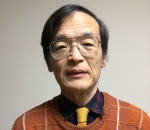↓ ↓ ↓
The family that generously hosted me during the Christmas vacation was quite large, with family members, distant relatives, friends, and even friends of friends constantly present in and around their home.
One evening, after a delicious dinner, I found myself in the bustling living room, surrounded by more than ten people. As the only Japanese speaker in the room, conversing in English with so many people at once was quite challenging, to say the least. Feeling a bit overwhelmed, I decided to bid everyone goodnight and retire to my room.
As I was about to leave, my host mother kindly said, “If there’s anything you need, please don’t hesitate to ask.” In that moment, I mustered the courage to make a somewhat unconventional request: “Can I have a can of beer?”
My host brother, a teenager at the time, reacted immediately with surprise, “Beer? Before going to bed?” His mother, however, quickly intervened with a reassuring gesture and handed me what I had asked for, adding, “Is there anything else you’d like?” as if nothing unusual had occurred.
This scene from more than forty years ago still lingers in my memory. It serves as a reminder of the complexities of cultural interactions and the importance of understanding the values and behaviors of the people around us.
The United States is often seen as a nation that values individual choice and freedom. While this is true, especially among young Americans, there can be instances where individuals act contrary to these values, just as my host brother did when he questioned my choice of a bedtime beverage. In such situations, the reactions of the adults and those around them become crucial in shaping and reinforcing cultural norms.
The way people respond to your actions and words can significantly influence the development of national characteristics. In my case, the young man’s discouragement from commenting further on my behavior reinforced the importance of individualism and freedom of choice, aligning with American values.
PS. The families who hosted overseas students asked for nothing in return. Their kindness moves me still. They enabled many overseas students, including myself, to make it in the United States. Thank you, America.
私立学校に英語教師として勤務中、40代半ばに差し掛かったころ、荒れたクラスを立て直す策として、生徒に公言して英検1級に挑戦することを思い立つ。同様の挑戦を繰り返し、退職までに英検一級(検定連合会長賞)、TOEIC満点、国連英検SA級、フランス語一級、スペイン語一級(文科大臣賞)、ドイツ語一級、放送大学大学院修士号などの成果を得る。
アメリカで生徒への対応法を学ぶ為に研修(地銀の助成金)。最新の心理学に触れた。4都県での全発表、勤務校での教員への研修を英語で行う。現在も特別選抜クラスの授業を全て英語で行っている。「どうやって単語を覚えればいいですか?」という良くある質問に答える為、印欧祖語からの派生に基づく「生徒には見せたくない語源英単語集」を執筆中。完成間近。常日頃洋書の読破で様々な思考にふれているが、そうして得た発想の一つを生かして書いた論文がコロナ対策論文として最近入賞。賞品の牛肉に舌鼓をうっている。元英検面接委員


